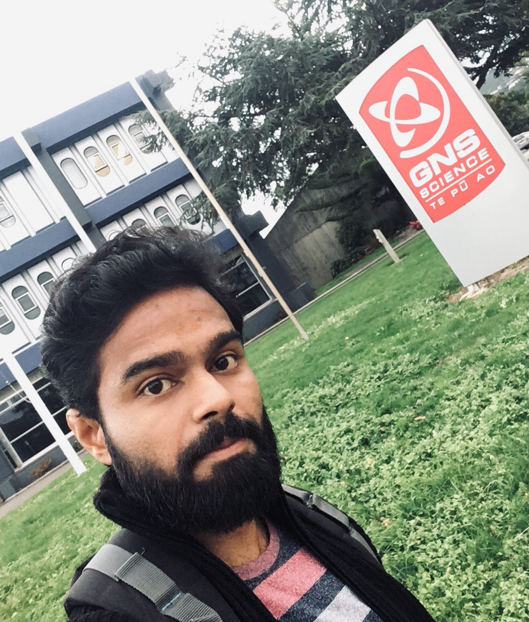Paleographic reconstruction through “radiolarians” to improve the understanding of past Southern Ocean changes.
 Abhilash Nair is a Project Scientist at the National Centre for Polar Ocean research in Goa, India. His fellowship was hosted by GNS Science in New Zealand, where he worked with Dr Guiseppe Cortese from May – August 2019.
Abhilash Nair is a Project Scientist at the National Centre for Polar Ocean research in Goa, India. His fellowship was hosted by GNS Science in New Zealand, where he worked with Dr Guiseppe Cortese from May – August 2019.
His project was entitled “Pleistocene-Holocene Variability in ACC Strength and Agulhas Leakage Intensity”.
The project aimed to understand past Southern Ocean changes and its influence on surface ocean circulation and other climate systems. Understanding past ocean conditions are vital for model-based predictions of future climatic trends. One goal was to study the impact of latitudinal shifts of the Antarctic Circumpolar Current (ACC) and associated fronts. These studies provide an insight into responses of the Southern Ocean to Antarctica’s and low latitude regions’ past climate changes.
A microfossil group called “radiolarians” was used for paleographic reconstruction and to estimate paleo-sea surface temperatures (SST). The visit to GNS Science enabled Abhilash to get trained in radiolarians identification and generate radiolarian counts for the reconstruction.
In total, Abhilash studied around 200 different species of radiolarians and extracted radiolarians from 16 different sediment samples from two cores. Around 6,400 radiolarians were counted in these samples under a light microscope.
Abhilash is preparing a manuscripts as the result of his Fellowship. He also participated in the GNS Science staff confrence and presented two talks, one at GNS Science and one at his home institute. He hopes that the project will lead to further joint projects and publication and help to inspire him to work on new and vital scientific problems. Abhilash commented on the SCAR Fellowship:
“My visit to GNS Science, New Zealand was a good way to broaden my research expertise.”
The full report is available here and on the SCAR Fellows webpage together with the full list of previous SCAR Fellows and available reports.
The SCAR Early-Career Fellowship Programme is designed to encourage the active involvement of early career scientists and engineers in Antarctic scientific research, and to build new connections and further strengthen international capacity and cooperation in Antarctic research. The work must be carried out in a research group of a SCAR member country different from that of the applicant’s origin and current residence.
